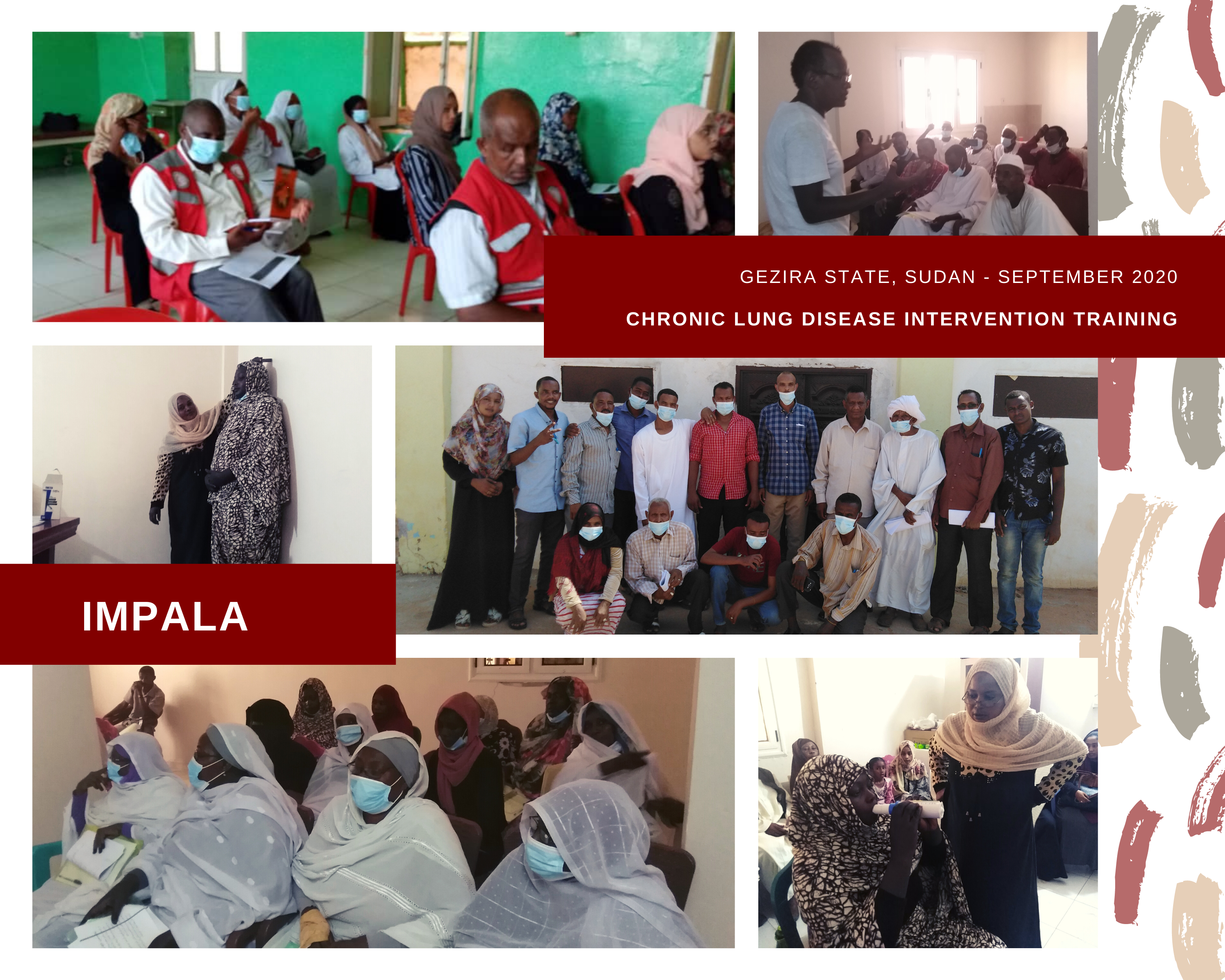
As one of the components of the intervention implementation phase of IMPALA’s joint Health Systems and Applied Social Sciences project in Sudan, the community volunteers and health workers were trained in their districts. Community volunteers were trained on the identification and referral of chronic lung diseases (CLD) patients, whereas the health workers were trained on the diagnosis and management of CLDs in their health facilities. Honorable guests were invited to the training, including Dr Ehab – Director General Ministry of Health Gezira state, Sudan and Dr Tsneem–Director of TB/HIV and Preventive Health Services.
The training for community volunteers aimed at identification and referral of presumptive CLD patients included CLD signs and symptoms, patient referral to health facilities in the intervention sites, treatment follow-up, health education and patients’ rights. They were also trained in using the community register book and referral cards. The community volunteers were selected from the local active groups within their community and with IMPALA intervention they were firstly introduced to health related work. Training was driven from the guidelines for community volunteers.
The training for health workers aimed at provision of up to date standard case management of CLD with a focus on asthma using the locally adapted guidelines of the International Union against Tuberculosis and Lung Diseases (The Union). Health workers were also trained on the data capturing tools including patients’ card, registers, monthly new case reports and treatment outcomes forms. The use of diagnostic tools such as Peak flow meters were also provided. The health workers were also trained to communicate with the community health volunteers and satellite health facilities.
The training was conducted in each district hospital separately, adhering to COVID-19 safety measures. The training was facilitated by local trainers from the Epidemiological Laboratory (Epi-lab) and involved informative presentations, group discussions, and practical sessions on the topics outlined above. Clinical settings involving CLD patients and their management were simulated. Additionally, actual CLD patients were examined and investigated in the health facilities using diagnostic tools such as the peak flow meter and patient’s treatment card, giving opportunity for real case scenarios.
In total; 2 Family Physicians, 11 Medical Doctors, 4 Medical Assistant, 4 Medical Statisticians and 33 Nurses of different levels were trained. With a focus on the community component in Gezira Sudan, a total of 96 Community Health Workers were trained including five main categories; change groups, traditional midwives-health visitors, students, Sudan Red Cross and other community-based organizations.
About the project:
IMPALA is a four-year collaborative programme operating across 10 African countries to generate knowledge and implementable solutions for high burden, under-funded and under-researched lung health problems and TB. Uzochukwu Egere & Elizabeth Shayo work on a joint Health Systems/Applied Social Sciences project supported by two in-country teams investigating an integrated health systems approach for improving health services for chronic lung disease in Sudan and Tanzania.
This research was funded by the National Institute for Health Research (NIHR) (IMPALA, grant reference 16/136/35) using UK aid from the UK Government to support global health research. The views expressed in this publication are those of the author(s) and not necessarily those of the NIHR or the UK Department of Health and Social Care.”
We thank The Epidemiological Laboratory (Epi-lab) Sudan, Gezira State Ministry of Health, IMPALA, and LSTM for facilitating this huge work.